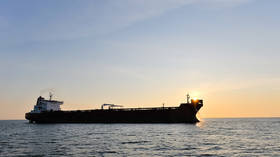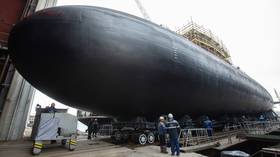Russian oil trading well above price cap

The average price of Russia’s flagship Urals blend of crude oil was $81.52 a barrel in October, the Ministry of Finance reported on Wednesday, 35% above the $60 price cap imposed by G7 and the EU in December.
The discount to the Brent benchmark last month stood at $9.57 per barrel.
Data shows that in annual terms, the average cost of Urals has increased by 15%. In October 2022, a barrel of Russian oil traded at $70.62.
However, in monthly terms the cost of Urals decreased by nearly 2%. In September, a barrel of Russian crude cost an average of $83.08. During the first 10 months of this year, the average price of Urals decreased significantly compared to the same period of 2022, standing at $61.84 per barrel versus $79.57.
The International Energy Agency (IEA) said last month that Russian oil export revenue surged by $1.8 billion in September, describing the spike as a combination of growth in total export volumes and higher average prices for Russian crude and oil products. Russia netted $18.8 billion from oil exports in September, making it the most profitable month since July 2022, according to the IEA.
The EU and G7 countries have largely failed to enforce a $60 per barrel price cap on Russian seaborne oil exports which was agreed in December 2022, according to data. Similar restrictions were introduced in February for exports of Russian petroleum products. The measures were aimed at reducing Russia's energy revenues.
Russian President Vladimir Putin subsequently signed a decree, which took effect on February 1, introducing retaliatory measures to the price cap on Russian oil exports. It bans the supply of oil and petroleum products to countries applying a price cap in their contracts and also prohibits deliveries if a contract directly or indirectly mentions the cap.
For more stories on economy & finance visit RT's business section











